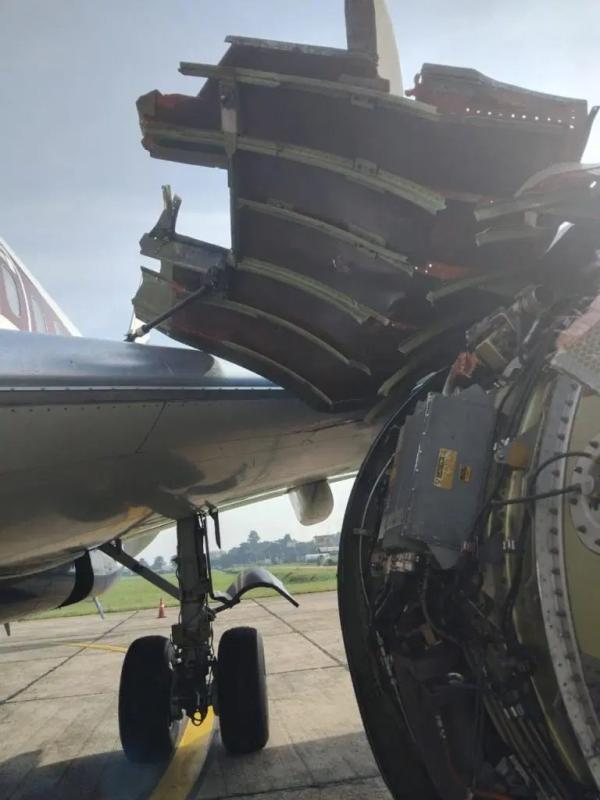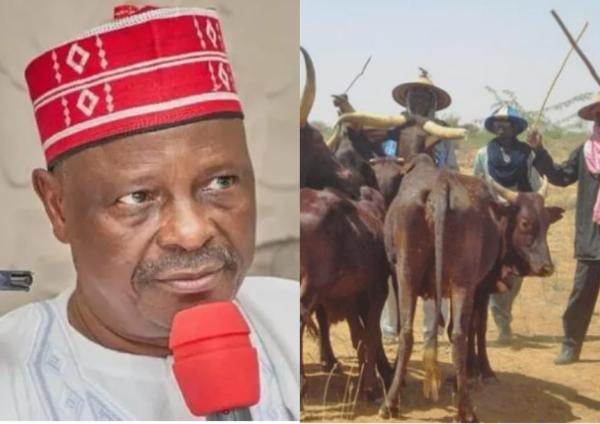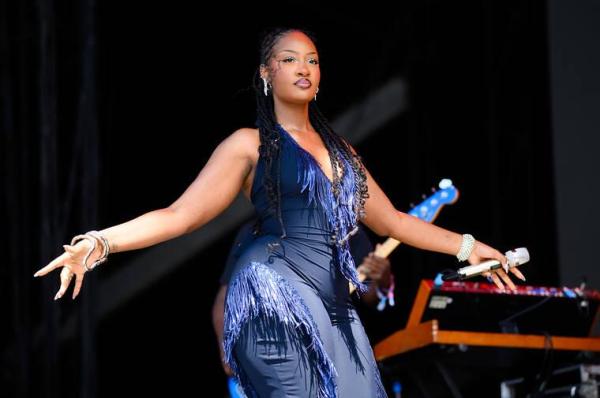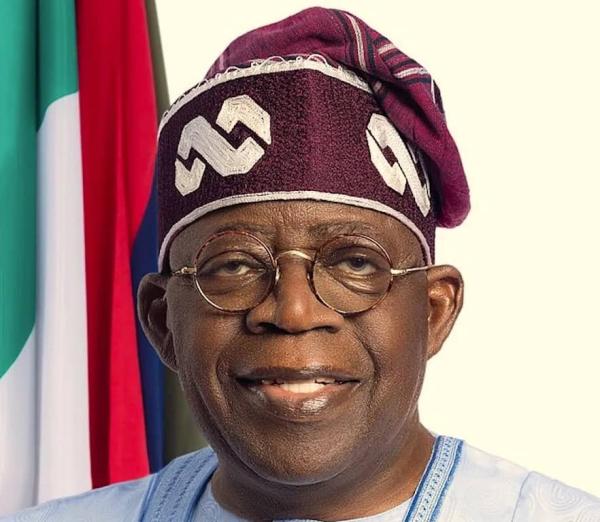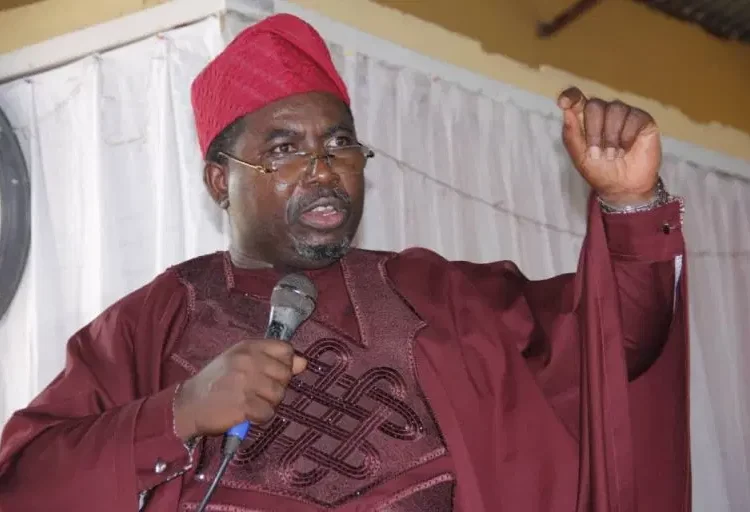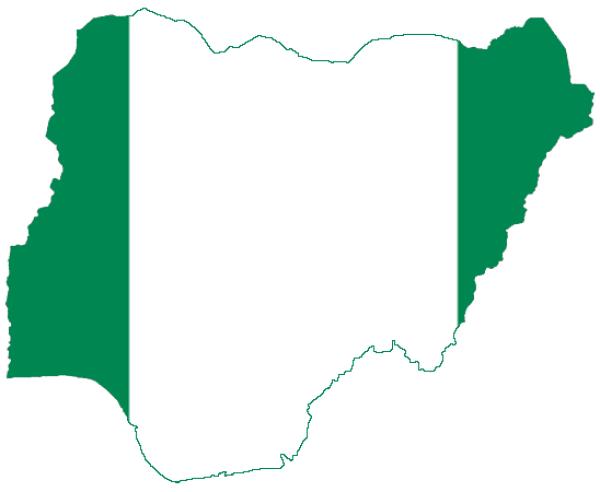
It is no longer strange, neither is it a myth to say that Nigeria is a heterogeneous country. Several reports have considered the country a federation of over 250 ethnic groups. A group, identified as “New Nigeria”, has taken time to come up with an in-depth research of the various ethnic groups in Nigeria and how they are spread across the states of the federation.
The Africa’s most populous country is, undoubtedly, blessed with diverse cultures, tribes and traditions. There are about 520 local languages in Nigeria of which nine of them are extinct, according to the group. Some of the largest among them include Hausa, Igbo, Yoruba, Ijaw, Fulfulde, Ibibio, Edo, Kanuri and Urhobo.
Below are the languages and the states, where they are spoken across the 36 states of the federation.
1. Abia State
Abia is a state in the southeastern part of Nigeria with administrative capital in the city of Umuahia.
Language spoken: Igbo
2. Adamawa State
Adamawa is a state in northeastern Nigeria, with its capital at Yola. In 1991, when Taraba State was carved out from Gongola State, the geographical entity Gongola State was renamed Adamawa State, with four administrative divisions: Adamawa, Ganye, Mubi and Numan.
Language spoken: Major languages of Adamawa State are Bacama/Bata (Bwatiye), Bura-Pabir, Fulfulde, Huba (Kilba), Longuda, Mumuye and Samba Daka. Most other languages in Adamawa State are extremely small and endangered minority languages, due to the influence of Hausa and Fulfulde. Holma is reported to be dying out.
3. Akwa Ibom State
The state is located in the South-South geopolitical zone, and is bordered on the east by Cross River State, on the west by Rivers State and Abia State, and on the south by the Atlantic Ocean and the southernmost tip of Cross River State. Akwa Ibom is one of Nigeria’s 36 states, with a population of over five million people
Language spoken: There are 20 languages spoken as first languages in Akwa Ibom State. The major languages are Anaang, Ibibio and Igbo. The other languages are minority languages. They include Anaang, Ebughu, Efai, Ekit, Enwang, Etebi, Ibibio, Ibino, Ibuoro, Idere, Igbo, Ika, Iko, Ilue, Itu Mbon Uzo, Nkari, Obolo, Okobo, Oro, Uda
4. Anambra State
Anambra is a state in southeastern Nigeria. Its name was inspired by one of its Northern and riverine clans Anam but merged with “branch”.
Language spoken: Igala and Igbo are the major languages of Anambra state
5. Bauchi State
Bauchi State is a state in northern Nigeria. Its capital is the city of Bauchi. The state was formed in 1976 when the former North-Eastern State was broken up.
Language spoken: Hausa, Fulani, Warji, Gere, Bolewa, Zaar, Karekare, Kanuri, Butawa, Jarawa, Kirfi
6. Bayelsa State
Bayelsa is a state in southern Nigeria in the core Niger Delta region, between Delta State and Rivers State. Its capital is Yenagoa.
Language spoken: Biseni, Ekpeye, Engenn, Epie, Ijo, Izon, kugbo, Ogbia, Okodia, Oruma.
7. Benue State
Benue State is one of the North central states in Nigeria with its capital in Makurdi
Language spoken: There are 14 languages spoken as first languages is Benue State. The major languages are Idoma, Igede and Tiv. The other languages are minority languages. Some include Akweya-Yachi, Etolu (Etilo), lgbo, Jukun, Ufia, Utonkong, Yalla
8. Borno State
Borno State is a state in north-eastern Nigeria. Its capital is Maiduguri. The state was formed in 1976 from the split of the North-Eastern State.
Language spoken: There are 28 (mostly Chadic) languages spoken as first languages in Borno State. Many of them are endangered due to the influence of Hausa and Kanuri. Major languages of Borno State are Shuwa Arabic, Kanuri, and Marghi. Some languages are spoken across the border in neighbouring Chad and Cameroon.
9. Cross River State
Cross River State is a coastal state in South Eastern Nigeria, named after the Cross River, which passes through the state.
Language spoken: 1. Efik 2. Ejagham(Ekoi) 3. Bekwarra 4. Yakuur Tribe 5. Boki Tribe 6. Agbo Tribe 7. Bahumono Tribe 8. Mbube Tribe 9. Mbembe Tribe 10. Ogoja people.
There are also many other minority tribes in Cross River state, whose origins and traditions are unknown but they mostly have their own LGAs. They include, the Ukelle, Etung, Anyima, Uyanga, Olulumo, Abayon, Ododop, Nkum, Nkim, Ikom and Akaju-Ndem amongst others. Cross River people are a very diverse people.
10. Delta State
Delta state is in South-South geo-political zone of Nigeria with a population of 4,112,445. Its capital is Asaba
Language spoken: Delta is quite ethnically diverse, and the beautiful tribes in Delta state include:
1. Urhobo 2. Itsekiri 3. Ijaw 4. Ukwani 5. Igbo (Delta Igbo), 6. Ika (@agbor) 7. Okpe 8. Okpe isoko 9. Isoko
11. Ebonyi State
Ebonyi State is in southeastern Nigeria. It is inhabited and populated primarily by the Igbo. Its capital and largest city is Abakaliki.
Language spoken: Ebonyi State is home to different sub-groups of the Igbo ethnic group. These include the Edda, the Ezza, the Izzi, and the Ikwo.
12. Enugu State
Enugu is a state in southeastern Nigeria, created in 1991 from part of the old Anambra State. Its capital and largest city is Enugu, from which the state derives its name.
Language spoken: Igbo, Idoma and Igala
13. Edo State
Edo State is in South South Geo-political zone of Nigeria with Benin City as its capital, the population of the entire state is approximately 8 million people.
Language spoken: the major tribal languages spoken in the state are Igarra, Edo, Etsako/Afemai, Esan and Okpamheri.
14. Ekiti State
Ekiti State is in Southwest region of Nigeria, declared a state on 1 October 1996 alongside five other states in the country by the then military government under head of state, General Sani Abacha
Language spoken: Ekitis are culturally homogeneous and they speak a dialect of Yoruba language known as Ekiti.
15. Gombe State
Gombe state located in the northeastern part of Nigeria, is one of the country’s 36 states; its capital is Gombe.
Language spoken: Gombe State comprises many tribal or ethnic groups among which are the Hausa, Tangale, Terawa, Waja, Kumo, Fulani, Kanuri, Bolewa, Jukun, Pero/Shonge, Tula, Cham, Lunguda, Dadiya, Banbuka etc. and Hausa is the common language of the people.
16. Imo State
Imo state is in southern Nigeria. Imo is bordered by the states of Anambra to the north, Abia (until 1991 part of Imo state) to the east, and Rivers to the south and west.
Language spoken: Igbo
17. Jigawa state
Jigawa is a state in northwestern Nigeria. Its capital is Dutse
Language spoken: The state is mainly populated by the Hausa, Fulani and the Mangawa, Badawa and Ngizimawa which are dialects of the kanuri language.
18. Kaduna State
Kaduna state is located at the northern part of Nigeria’s high plains. The vegetation cover is Sudan savannah characterized by scattered short trees, shrubs and grasses.
Language spoken: 1. Hausa 2. Gbagyi 3. Adara 4. Akurmi 5. Bajju 6. Bakulu 7. Gwandara 8. Atyab 9. Ham 10. Ninzo
Other Tribes in Kaduna State are Anghan, Amo, Aruruma, Atachaat, Ayu, Bhazar, Bur, Binawa, Dingi, Fantswam, Fula, Gure, Gwong, Jangi, Kaibi, Kahugu, Kanufi, Kigono, Kinugu, Kitimi, Kiwafa, Kiwollo, Koro, Kuvori, Kuturmi, Lemoro, Mada (Mardan), Nandu, Nduyah, Numana, Nindem, Ningeshe, Ninkyop, Nyenkpa, Oegworok, Pikal, Pitti, Ribang, Rishuwa, Rumada, Ruruma, Rumayya, Shemawa, Sholio, Siyawa, Takad, Tarri, Tsam, Tuku.
19. Kano State
Kano State is a state located in Northern Nigeria. Created on May 27, 1967 from part of the Northern Region, Kano state borders Katsina State to the north-west, Jigawa State to the north-east, Bauchi State to the south-east and Kaduna State to the south-west. The capital of Kano
Language spoken: The official language of Kano State is Hausa language, but Fulani languages is commonly spoken.
20. Katsina State
Katsina is a state in North West zone of Nigeria. Its capital is Katsina
Language spoken: Hausa and Fulfulde.
21. Kebbi State
Kebbi is a state in north-western Nigeria with its capital at Birnin Kebbi. The state was created out of a part of Sokoto State in 1991.
Language spoken: Kebbi State has diverse ethnic groups, the dominant among which are Hausas, Fulanis, Kabawa, Dakarkaris, Kambaris,Gungawa, Dandawa, Zabarmawa, Dukawa, Fakkawa and Bangawa. These ethnic groups speak diverse languages and dialects, with the Hausa language spoken all over the state.
22. Kogi State
Kogi, is a state in the central region of Nigeria. It is popularly called the Confluence State because of the confluence of River Niger and River Benue at its capital, Lokoja, which is the first administrative capital of modern-day Nigeria.
Language spoken: There are three main ethnic groups and languages in Kogi: Igala, Ebira, and Okun (similar to Yoruba) with other minorities like Bassa, a small fraction of Nupe mainly in Lokoja, Gwari, Kakanda, Oworo people (similar to Yoruba), ogori magongo and the Eggan community under Lokoja Local Government.
23. Kwara State
Kwara is a state in Western Nigeria. Its capital is Ilorin. Kwara is located within the North Central geopolitical zone, commonly referred to as the Middle Belt.
Language spoken: Yoruba, Nupe, Bariba and Fulani
24. Lagos State
Lagos, sometimes referred to as Lagos State to distinguish it from Lagos Metropolitan Area, is a state in the southwestern geopolitical zone of Nigeria.
Language spoken: Yoruba
25. Nasarawa State
Nasarawa is a state in north central zone of Nigeria. Its capital is Lafia.
Language spoken: There are 29 languages spoken as first languages in Nasarawa State namely: agatu, ake, alago, arum-tesu, basa, basa-gumna, bu, duhwa, ebira, eggon. eloyi, gade, gbayi, gbari, goemai, gwandara, ham, hasha, kofyar, lijili, mada, mama, ninzam, numana-nunku-gwantu-numbu, nungu, tiv, toto, wapan, yeskwa. Major languages are Agatu, Basa, Eggon, Gbagyi, Gade, Goemai, Gwandara, Ham, Kofyar, and Lijili but the common language spoken among the people is Hausa.
26. Niger State
Niger State is a state in Central Nigeria and the largest state in the country. The state capital is Minna.
Language spoken: There are 38 languages spoken as first language in Niger State. Gbari, Gbagyi and Nupe are major languages. The other languages are minority languages, some of them extremely small and endangered. Basa-Kontagora is reported to be spoken by only ten people. Basa-Gumna is extinct.
27. Ogun State
Ogun State is a state in southwestern Nigeria. Created in 1976, it borders Lagos State to the south, Oyo and Osun states to the north, Ondo to the east and the Republic of Benin to the west. Abeokuta is the capital and largest city in the state.
Language spoken: The major language is Yoruba. Ogun however, has other dialects which include the following: Egba, Ijebu, Owu, Awori and Yewa.
28. Ondo State
Ondo or Ondo State is a state in Nigeria created on 3 February 1976 from the former Western State. It originally included what is now Ekiti State, which was split off in 1996. Akure is the state capital.
Language spoken: The State is dominated by Yorubas who speak various dialects of the Yoruba language such as the Akoko, Akure, Apoi, Idanre, Ikale, Ilaje, Ondo and the Owo and a minority speaking the Ijaw Language.
29. Osun State
Osun is an inland state in south-western Nigeria. Its capital is Osogbo. It is bounded in the north by Kwara State, in the east partly by Ekiti State and partly by Ondo State, in the south by Ogun State and in the west by Oyo State.
Language spoken: The major ethnic group in Osun state is Yoruba with sub-ethnic groups such as Ife, Ijesha, Oyo, Ibolo and Igbomina and there are also people from other parts of Nigeria.
30. Oyo State
Oyo state is an inland state in south-western Nigeria, with its capital at Ibadan.
Language spoken: The Yoruba language is the major language spoken in Oyo state.
31. Plateau State
Plateau state is located in central Nigeria on an area of 26,899 square kilometres, with an estimated population of about three million people. Jos, the Plateau state capital is a very cosmopolitan city.
Language spoken: There are 48 languages spoken as first languages in Plateau State. Many of them are endangered due to the influence of Hausa. Major languages spoken in Plateau State are Angas, Berom, Goemai, Kofyar, Mwaghavul, Ron, and Tarok, each spoken by more than 100,000 people.
32. Rivers State
Rivers State, also known simply as Rivers, is one of the 36 states of Nigeria. According to census data released in 2006, the state has a population of 5,198,716, making it the sixth-most populous state in the country.
Language spoken: There are 23 languages spoken as first languages in Rivers State. The major languages are Igbo, Ikwere, Kalabari, Khana and different varieties of the Ijo cluster. The other languages are minority languages.
33. Sokoto State
Sokoto is located in the extreme northwest of Nigeria, near to the confluence of the Sokoto River and the Rima River.
Language spoken: Sokoto State is predominantly a Fulani and Hausa state. It is populated by several Hausa subgroups such as the Gobirawa, the Zamfarawa, the Kabawa, the Adarawa and the Arawa, and the two main Fulani groups which are the Fulanin Gida or Town Fulani and the nomadic Fulani.
34. Taraba State
Taraba is a state in North Eastern Nigeria, named after the Taraba River which traverses the southern part of the state. Taraba’s capital is Jalingo.
Language spoken: Etkywan (Icen), Fulfulde, Jukun, Kpan, Mumuye, Samba Daka, Samba Leko, Tiv, and Yendang
35. Yobe State
Yobe is a state located in Northeast Nigeria. A mainly agricultural state, it was created on August 27, 1991. Yobe state was carved out of Borno State. The capital of Yobe state is Damaturu.
Language spoken: 1. Kanuri 2. Ngizim 3. Karai-Karai 4. Bolewa 5. Bade 6. Hausa 7. Ngamo 8. Shuwa 9. Fulani 10. Margi
36. Zamfara State
Zamfara is a state in northwestern Nigeria. Its capital is Gusau. Until 1996 the area was part of Sokoto State.
Language spoken: There are quite a number of tribes in Zamfara State. These include the majority Hausa, the Fulani, the Gbagyi and the Kamuku..
A New Nigeria












